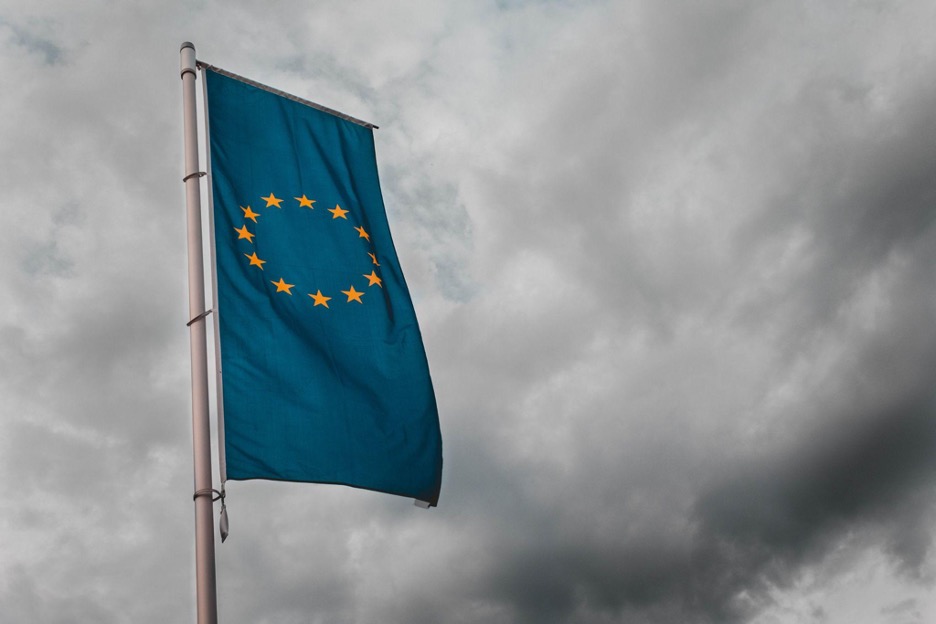In recent months, the news has been full of updates on the ongoing row between Poland and the European Union over questions on the supremacy of EU law over Member States. Much of this discussion has left people asking whether Poland’s exit from the European Union, termed ‘Polexit,’ is on the horizon, or whether this ongoing conflict is simply another outburst from a rogue Member State.
Poland’s right-wing ruling party, the Law and Justice party (PiS), pushed for the judiciary reforms that have spurred this conflict. One such reform was a bill that “[penalizes] judges who question the legitimacy of legal changes made by the government,” and forbids “show[ing] hostility toward other authorities of the Republic of Poland and its constitutional organs, as well as to criticize the basic principles of the Republic of Poland.”[1] [2] It also clearly supported the conclusion that “the PiS-controlled Constitutional Tribunal carries more weight than the [Court of Justice of the European Union]”.[3] The bill, termed the ‘muzzle law,’ came in response to prior criticisms from the Court of Justice of the EU (CJEU) which questioned the independence of the country’s judiciary. At the time of this criticism, members of the National Council of the Judiciary had been removed and new members were “appointed by the PiS-controlled parliament.”[4] Other judiciary reforms included transferring judges to new posts against their will, and the creation of a new disciplinary body within the Supreme Court.[5]
In March 2021, Poland’s Prime Minister Mateusz Morawiecki brought a legal challenge to the Polish constitutional court on the primacy of EU law.[6] This was part of an attempt to stop Polish judges “from using EU law to question the legitimacy of judges appointed” in the recent judiciary reforms.[7] Hence this was a move to strengthen acceptance of the reforms. The Polish Constitutional Tribunal held hearings from July to September 2021 to discuss this case, and assess whether the Polish Constitution must conform to certain sections of the Treaty of the European Union (TEU).[8] On October 7, 2021 they published a judgement which established “that the national constitution had primacy over EU law, effectively rejecting the legal bedrock upon which the European Union is based”.[9] More specifically, the Constitutional Tribunal ruled that four articles of the TEU conflict with and do not have primacy over the Polish constitution.[10] The four articles in question are as follows:
Article 1, in which European countries agree to form a European Union;[11]
Article 2, in which the European Union is defined as being based on “values of respect for human dignity, freedom, democracy, equality, the rule of law and respect for human rights, [… and] the rights of persons belonging to minorities […] in a society in which pluralism, non-discrimination, tolerance, justice, solidarity and equality between women and men prevail”;[12]
Article 4.3, in which the EU and Member States agree to help each other complete tasks that arise from the Treaties;[13]
Article 19, in which the Court of Justice of the EU is introduced, and that it will “ensure that in the interpretation and application of the Treaties the law is observed.”[14]
The constitutional court has criticized Articles 1 and 4 for acting “beyond the limits of competences transferred by the Republic of Poland in the treaties,” and has ruled that Articles 19 and 2 enable European courts to “illegally override the Polish constitution.”[15] Moreover, the tribunal stated that the CJEU’s involvement in this matter constituted a violation of “the principle of rule of law, the principle of the primacy of the Polish constitutions as well as the principle of retaining sovereignty in the process of European integration.”[16] In response to this ruling, Ursula von der Leyen, President of the European Commission, expressed her deep concern and promised “to ‘use all the powers’ at her disposal to enforce EU laws.”[17]
In light of these events, many have asked whether Polexit is likely in the near future. Both Poland’s prime minister and foreign minister have denied this, and Poles are inclined to agree as the current approval rating for the EU remains at a high of 80%.[18] This support is not just visible in statistics; after the Constitutional Tribunal’s judgement was published, mass protests broke out across Poland to protest Polexit.[19] Poles’ support for remaining in the EU has been attributed to the ways EU membership has given them the “inestimable feeling of being Europeans”, as opposed to “second-class Europeans, on the fringes of the old continent.”[20] Besides this sentiment, Poland also significantly benefits financially from EU coffers, and Brexit has left a sour taste in the mouths of many Poles, hence they are unlikely to follow Britain’s example.[21]
It has been suggested that though Polexit would not occur, a ‘de facto’ exit from the EU is still a possibility.[22] Under Article 7 of the TEU, a Member State’s voting rights can be suspended if all other Member States are in favor of it.[23]Due to this high threshold, such an action is unlikely. Moreover, Poland has been involved in Article 7 proceedings before but with little result.[24]
In light of the ruling by the Polish Constitutional Tribunal, the EU faces two possible courses of action: 1) begin an infringement procedure, or 2) decrease the financial aid currently being given to Poland by the EU.[25] The first option would go through the European Court of Justice, which is capable of requiring Member States to pay daily fines until they stop infringing.[26] If Member States do not pay these fines, the European Commission can further limit the funding given to a Member State.[27] The EU opted for the first option, and has imposed a daily fine of €1 million until Poland agrees to follow the CJEU’s court order to put a stop to its “disciplinary mechanism for judges.”[28] This is the highest daily fine that has ever been imposed on a Member State by the European Court of Justice.[29]
Most recently, the CJEU has reiterated its stance, saying that “Polish rules allowing the justice minister to assign and remove judges from higher criminal courts violate EU law”.[30] Moreover, the latest judicial reforms by the justice minister do not adopt any of the changes that the European Commission or CJEU have called for. It remains unclear how this situation will develop over the coming weeks and months. There has been speculation as to how this will play out. For instance, a professor of EU law at University College London, Piet Eeckhout, has stated that “ultimately, Poland should leave or accept implications of its membership”.[31] Regardless of such guesses, the EU has made it clear that it will not be backing down anytime soon.
Sources
Cienski, J. (2019). “Poland risks EU membership with legal reforms, court warns.” POLITICO. <www.politico.eu/article/poland-risks-eu-membership-with-legal-reforms-court-warns/>
Wanat, Z. (2019). “Polish lawmakers ignore warnings and race through legal reforms.” POLITICO. <www.politico.eu/article/polish-lawmakers-ignore-warnings-and-race-through-legal-reforms/>
Wanat, Z. (2021). “Court ruling puts Poland on a collision course with the EU’s legal order.” POLITICO. <www.politico.eu/article/poland-european-union-constitution-justice-treaties/>
BBC. (2021). “Mass protests in Poland amid EU exit fears.” <www.bbc.com/news/world-europe-58863680>
Polish Constitutional Tribunal. (2021). “Assessment of the conformity to the Polish Constitution of selected provisions of the Treaty on European Union.” <trybunal.gov.pl/en/hearings/judgments/art/11662-ocena-zgodnosci-z-konstytucja-rp-wybranych-przepisow-traktatu-o-unii-europejskiej>
Van Dorpe, S. (2021). “Explained: What bombshell Polish court ruling means for EU.” POLITICO. <www.politico.eu/article/explained-poland-court-ruling-european-union-eu/>
The Treaty on European Union. Official Journal C 326 , 26/10/2012 P. 0001 – 0390. <eur-lex.europa.eu/legal-content/EN/TXT/HTML/?uri=CELEX:12012M/TXT>
Voxeurop. (2021). “Polexit will not happen.” <voxeurop.eu/en/poland-eu-polexit-wont-happen/>
Wanat, Z. (2021). “Poland hit with record €1M daily fine in EU rule-of-law dispute”. POLITICO. <www.politico.eu/article/poland-record-1-million-euros-daily-fine-eu-rule-of-law-dispute/>
Wanat, Z. (2021). “Poland smacked down again by top EU court.” POLITICO. <www.politico.eu/article/poland-zbigniew-ziobro-justice-top-eu-court/
[1] Cienski, J. (2019). “Poland risks EU membership with legal reforms, court warns.” POLITICO. <www.politico.eu/article/poland-risks-eu-membership-with-legal-reforms-court-warns/>
[2] Wanat, Z. (2019). “Polish lawmakers ignore warnings and race through legal reforms.” POLITICO. <www.politico.eu/article/polish-lawmakers-ignore-warnings-and-race-through-legal-reforms/>
[3] Cienski, J. (2019). “Poland risks EU membership with legal reforms, court warns.” POLITICO. <www.politico.eu/article/poland-risks-eu-membership-with-legal-reforms-court-warns/>
[4] Wanat, Z. (2019). “Polish lawmakers ignore warnings and race through legal reforms.” POLITICO. <www.politico.eu/article/polish-lawmakers-ignore-warnings-and-race-through-legal-reforms/>
[5] Wanat, Z. (2021). “Court ruling puts Poland on a collision course with the EU’s legal order.” POLITICO. <www.politico.eu/article/poland-european-union-constitution-justice-treaties/>
[6] BBC. (2021). “Mass protests in Poland amid EU exit fears.” <www.bbc.com/news/world-europe-58863680>
[7] Ibid.
[8] Polish Constitutional Tribunal. (2021). “Assessment of the conformity to the Polish Constitution of selected provisions of the Treaty on European Union.” <trybunal.gov.pl/en/hearings/judgments/art/11662-ocena-zgodnosci-z-konstytucja-rp-wybranych-przepisow-traktatu-o-unii-europejskiej>
[9] Van Dorpe, S. (2021). “Explained: What bombshell Polish court ruling means for EU.” POLITICO. <www.politico.eu/article/explained-poland-court-ruling-european-union-eu/>
[10] Ibid.
[11] The Treaty on the European Union. Official Journal C 326 , 26/10/2012 P. 0001 – 0390. Article 1. <eur-lex.europa.eu/legal-content/EN/TXT/HTML/?uri=CELEX:12012M/TXT>
[12] Idem, Article 2.
[13] Idem, Article 4.3.
[14] Idem, Article 19.
[15] Van Dorpe, S. (2021). “Explained: What bombshell Polish court ruling means for EU.” POLITICO. <www.politico.eu/article/explained-poland-court-ruling-european-union-eu/>
[16] Wanat, Z. (2021). “Court ruling puts Poland on a collision course with the EU’s legal order.” POLITICO. <www.politico.eu/article/poland-european-union-constitution-justice-treaties/>
[17] Van Dorpe, S. (2021). “Explained: What bombshell Polish court ruling means for EU.” POLITICO. <www.politico.eu/article/explained-poland-court-ruling-european-union-eu/>
[18] Voxeurop. (2021). “Polexit will not happen.” <voxeurop.eu/en/poland-eu-polexit-wont-happen/>
[19] BBC. (2021). “Mass protests in Poland amid EU exit fears.” <www.bbc.com/news/world-europe-58863680>
[20] Voxeurop. (2021). “Polexit will not happen.” <voxeurop.eu/en/poland-eu-polexit-wont-happen/>
[21] Ibid.
[22] Van Dorpe, S. (2021). “Explained: What bombshell Polish court ruling means for EU.” POLITICO. <www.politico.eu/article/explained-poland-court-ruling-european-union-eu/>
[23] The Treaty on the European Union. Official Journal C 326 , 26/10/2012 P. 0001 – 0390. Article 7. <eur-lex.europa.eu/legal-content/EN/TXT/HTML/?uri=CELEX:12012M/TXT>
[24] Van Dorpe, S. (2021). “Explained: What bombshell Polish court ruling means for EU.” POLITICO. <www.politico.eu/article/explained-poland-court-ruling-european-union-eu/>
[25] Ibid.
[26] Ibid.
[27] Ibid.
[28] Wanat, Z. (2021). “Poland hit with record €1M daily fine in EU rule-of-law dispute”. POLITICO. <www.politico.eu/article/poland-record-1-million-euros-daily-fine-eu-rule-of-law-dispute/>
[29] Ibid.
[30] Wanat, Z. (2021). “Poland smacked down again by top EU court.” POLITICO. <www.politico.eu/article/poland-zbigniew-ziobro-justice-top-eu-court/>
[31] Van Dorpe, S. (2021). “Explained: What bombshell Polish court ruling means for EU.” POLITICO. <www.politico.eu/article/explained-poland-court-ruling-european-union-eu/>








